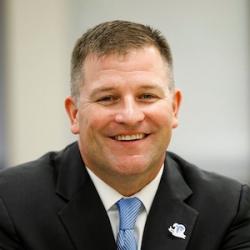The Mental Game: Bryan Price on Working On The 4th Pillar During COVID-19
This must-read article is written by columnist Bryan Price a performance and mindset coach who founded Top Mental Game.
Julie Foudy is one of the most accomplished female soccer players in the world. A dominant midfielder for the U.S. Women’s National Team from 1987 through 2004, Julie served as co-captain for nine years and captain from 2000 through her retirement. In her 18-year national team tenure that included 271 international caps, the U.S. women won two FIFA Women’s World Cup titles (1991, 1999), two Olympic gold medals (1996, 2004), and a silver medal in 2000. She began working as an analyst for ESPN in 2005 and founded the Julie Foudy Sports Leadership Academy in 2006. She was inducted into the National Soccer Hall of Fame in August 2007.
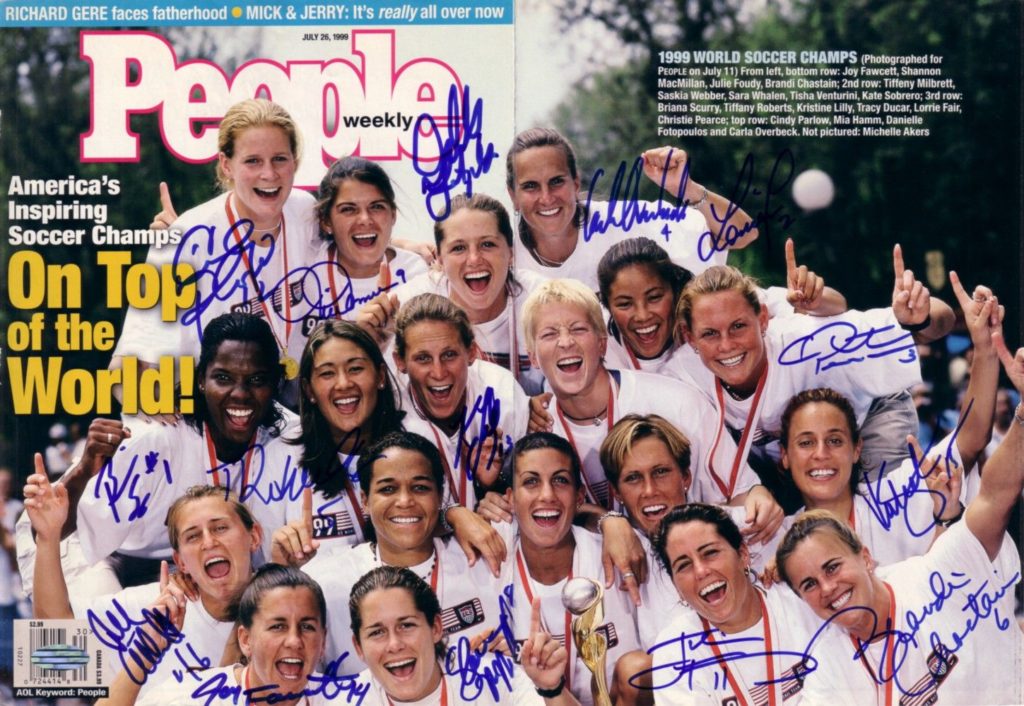
Last week Julie sat down with SoccerToday columnist Bryan Price at the Top Mental Game Soccer Summit to discuss the mental game and its importance to her career.
Bryan Price: When were you first introduced to mental skills training and what impact did it have on your career?
Julie Foudy: It is and has been one of the most important parts of my career.
Our U.S. Women’s National Team had the opportunity to work with the amazing Dr. Colleen Hacker who came onto our team after we lost the 1995 World Cup. We had won the 1991 World Cup, but we didn’t have a mental skills component for the 1995 Women’s World Cup. Although we trained super hard and were physically fit, mentally we were not at our best. And it showed. We lost to Norway in the semi-final, in a game we should’ve won.
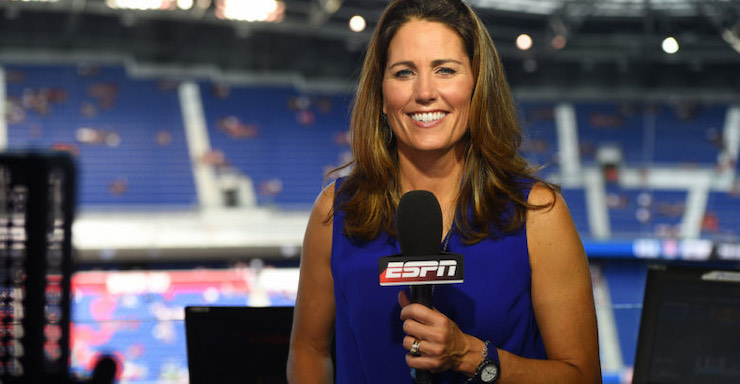
Afterward, Tony DiCicco, our coach at the time, decided to bring in a mental skills coach.
So he brought in Colleen Hacker and let me tell you, Dr. Hacker was like a godsend to us.
At first, we were all like, “What? A mental skills coach? This is weird.”
Julie Foudy
We wondered if we going to be lying down on a couch? What was this?We didn’t know anything about it because back then it wasn’t that common.
Colleen came in and it was life-altering in the sense that she taught us skills we will use for the rest of our lives. I’m constantly bringing up Collen Hacker when I talk about leadership, team chemistry, and culture-building.
Read: MAKING THESE COVID-19 DAYS COUNT WITH BRYAN PRICE & JULIE FOUDY
She made us pay attention to the small things. She used to say, “You know that book Don’t Sweat the Small Stuff? That’s not true.
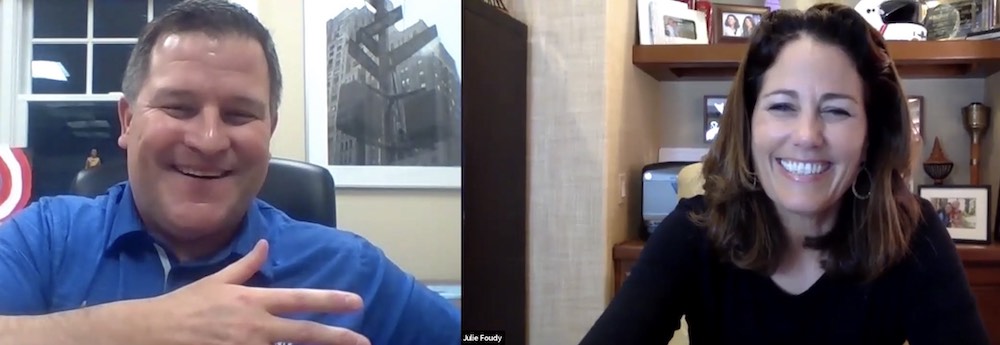
“Sweat the small things. The small things are what make you great.”
She always talked about the 2-3% edge and the difference it makes. No matter what the other team is working on – the physical, the technical, and the tactical – when your mental game is strong, it can be the difference.
It was the difference in us losing in 1995 and then winning against Norway when we played them again in the Olympic semi-finals the very next year.
Colleen stayed with us for a decade. She taught me so much about how to handle the moments that all athletes have – anxiety, the butterflies, times when we lack confidence, and when we’re not feeling up to the task.
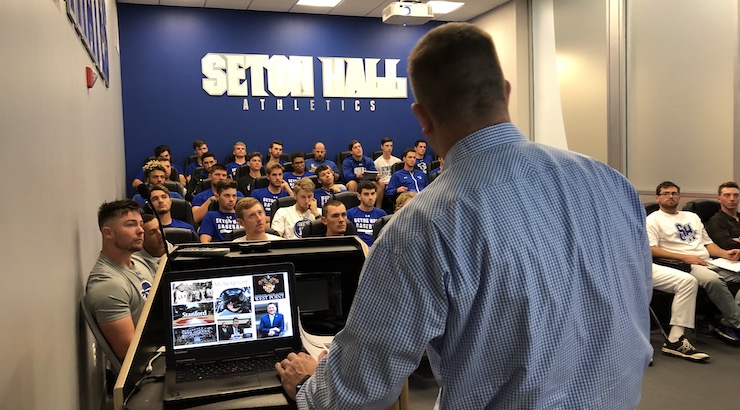
Bryan Price: How did you overcome those times when you were nervous?
Julie Foudy: I remember going into Colleen one time and saying, “Hey, I have these butterflies and I hate them. I’ll do anything to get rid of them.” And Colleen said, “No, no, no. Don’t wish the butterflies away because the butterflies mean it matters. You care. It means that what you’re doing is important. Now, you just have to teach those butterflies to fly in formation. ”
To get my butterflies to fly in formation, Colleen taught me I could control them with my brain. She said, “Our brains can only handle one thought at a time, so you want to replace that negative thought with a positive one.”
So to prevent those butterflies and the negative thoughts from leading me into a downward spiral, she taught me to, in that moment, do a physical reminder and to snap out of it. I used to wear a hairband on my wrist, so when I had those butterflies or negative thoughts, I physically snapped my hairband on my wrist, and it was a mental reminder to ‘snap out of it’ and play.
I teach kids and coaches this strategy all the time. If it’s not a hairband, maybe it’s pulling up your socks, or fixing your sleeves, or adjusting your ponytail, or whatever your physical reminder is. But the important thing is that you control that narrative in your brain, so make sure you’re planting it with positivity.
And it works. I still use it ALL the time.

Bryan Price: What other advice would you give to athletes who still get nervous?
Julie Foudy: What I’ve realized is that everyone gets that way.
Instead of thinking, “Am I the only one who feels like this,” realize that everybody feels like that.
Mind you, I went through years of this. And I still get butterflies today. But now I’ve flipped my thinking. I no longer think they’re a bad thing. I still get them today, but I look forward to getting them. You know, I don’t get them doing the dishes, and there’s a reason for that – because I don’t get excited about doing the dishes!
Now, when I get the butterflies, I get excited because I know that I can treat it like an opportunity instead of a pressure situation , and when you reframe it like that, they become something you look forward to.
Because even if you do fail, what’s the worst thing that’s going to happen? I get another chance at it. I’m going to be OK.
Bryan Price: How do you keep the proper mindset in soccer when faced with adversity, such as coming off the bench?
Julie Foudy: It’s interesting because when I look across the 4 national teams that won the two FIFA World Cups and two Olympic gold medals, the common denominators were that we got players 18, 19, and 20 right.

Those are the last 3 players on the team roster. The last 3 players that a coach would pick.
So Carla Overbeck [fellow team captain] and I would go into the coach’s office and say we want to pick 18, 19, and 20. Because we felt that if we got those right, we’re winning.
It was a fact because those players would be so bought-in and so invested in the team being successful, that it created an energy, a culture, and a buy-in that helped us win.
Abby Wambach talks about the 2015 World Cup when she was told she had to lead from the bench in her famous Wolfpack Barnard Commencement speech – class of 2018.

“Here I am, the world’s greatest goal scorer and you want me to play on the bench?”
Abby Wambach – Rule No. 2: Lead from the bench.
But she accepted it. Not only did she accept it, she started being the biggest cheerleader from the bench.
And to take it one step further, I would argue that they don’t win that World Cup if Abby hadn’t accepted that role the way she did.
And as she put it in her speech, “Unless you’re leading from everywhere, meaning the bench or the field, you’re leading from nowhere.“
Look, I’ve been on the bench and I know that being on the bench isn’t easy. It’s hard. It is frustrating. You’re angry and you may think you should be in. But the best leaders, in my opinion, are the ones who lead when things are hard and not going well.
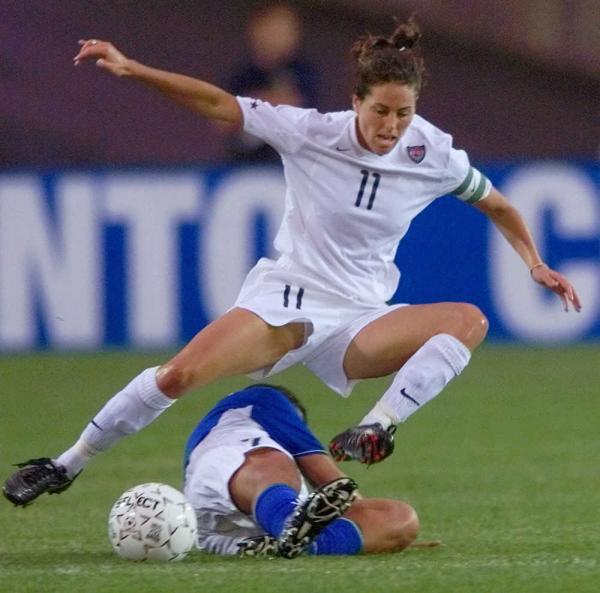
Are you strong enough to say, “OK, I may disagree with you, but I get it, and I’m going to be here for the team.” That’s not easy, but boy what a difference it can make for a team.
We also used to play a game in films called “Who Started This.”
Instead of focusing on the player who just scored the goal, we looked for who started it 10 passes back, by winning a tackle in the defensive third and allowing us to counter off of that.
This way, the players who weren’t always in the headlines or getting all the minutes understood their value of the team.
Or it was as simple as walking over to one of the reserves after a hard practice and saying, “Thanks for making me better today. You really busted it, and I needed that. Because you worked so hard, you made me better today.
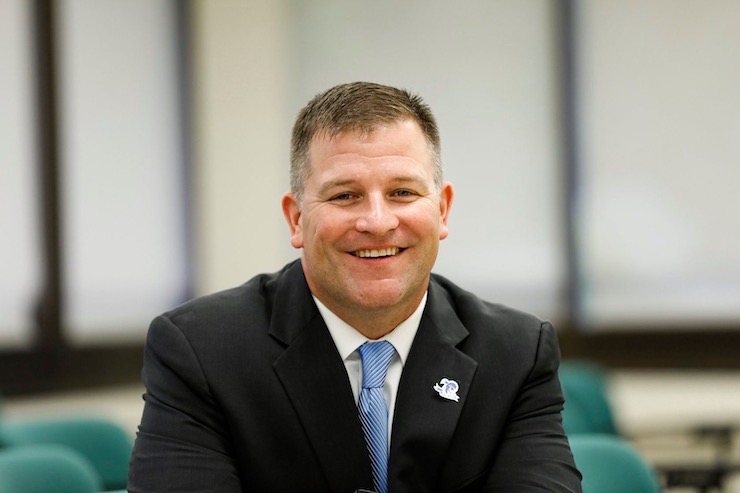
Bryan Price: What was the hardest point in your career and how did you overcome your greatest adversity?
Julie Foudy: It is called Imposter Syndrome, which is something that a lot of women suffer from today.
My greatest adversity was just feeling as though I belonged – that I was good enough.
But it was a good 10 years into my national team career, out of 18, that I finally felt like, ok, maybe I shouldn’t worry about getting called up.
And while some of that is ‘good’ motivation, a lot is unnecessary fear and anxiety. And so much of me getting through that adversity coincided with Colleen coming into the team and just learning strategies of “yes, you do belong, you’ve put in the work, and you have that confidence.”
Read: LEGENDARY JULIE FOUDY ON WHY GIRLS SHOULD PLAY HIGH SCHOOL SOCCER
She helped me to get my butterflies flying in formation. We worked on things like ‘controlling the controllables‘ and removing anxiety about things outside of our control.
So the hardest thing for me was just really being secure with me and how I played. And that goes for everything in life. You start to feel like I’m finally being the person I was meant to be.
And I think Colleen – and the mental side – definitely helped me get there. I’m not sure I would’ve been able to get there on my own.
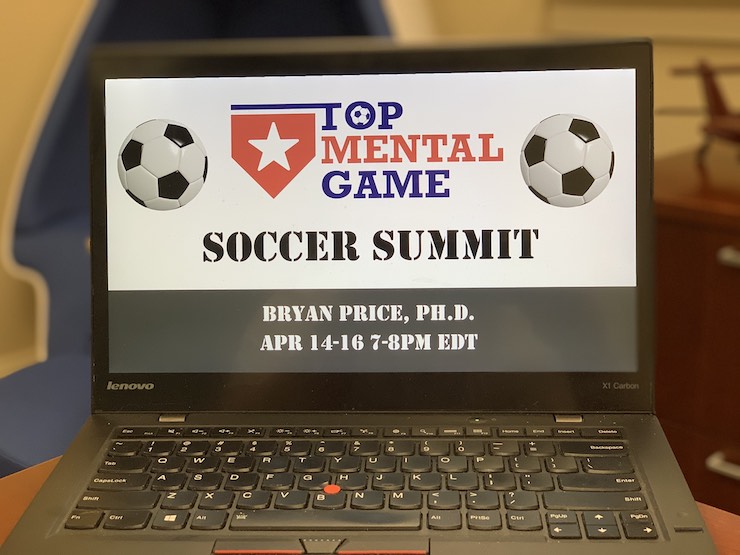
Bryan Price: How do you deal with mistakes? I’ve heard you tell the infamous “Park It” story before – would you mind retelling for our Soccer Today readers?
Julie Foudy: Of course! So there we were in the Gold Medal match of the 1996 Olympics and Colleen was on our sidelines as an assistant coach.
For the entire preseason, Colleen had drilled into us, if something bad happens, just think about what you do when you go shopping.
You drive there. You park your car, get out, and go do your thing. You don’t park your car, get out, walk a few steps, and then obsess over where you parked the car. No, you just park your car, go shop, and you come back to that parked car later.
During warm-ups, a player [Colleen has never divulged who] comes sprinting over to her on a bee-line. And as Colleen tells it, when a player comes sprinting over to the mental skills coach on a bee-line before a big competition, with angst on their face, that’s never a good thing.
So the player starts rambling to Collen about all these things – this and that and this, and she’s super animated, with veins are popping out, and Colleen quietly lets her finish. To diffuse the situation, Colleen laughs a little bit, and then says, “You know what I’m going to say now.”
And the player says, “Yeah, you’re going to tell me to PARK IT! You’re going to say, ‘PARK IT’ … and I’m going to tell YOU the parking lot is FULL!”
So what did Colleen say to the player? After a long pause, Colleen says, “Well…you’re gonna have to build another deck.”
What a perfect thing to say! So the player turned and jogged off, and we went out and won the gold medal.
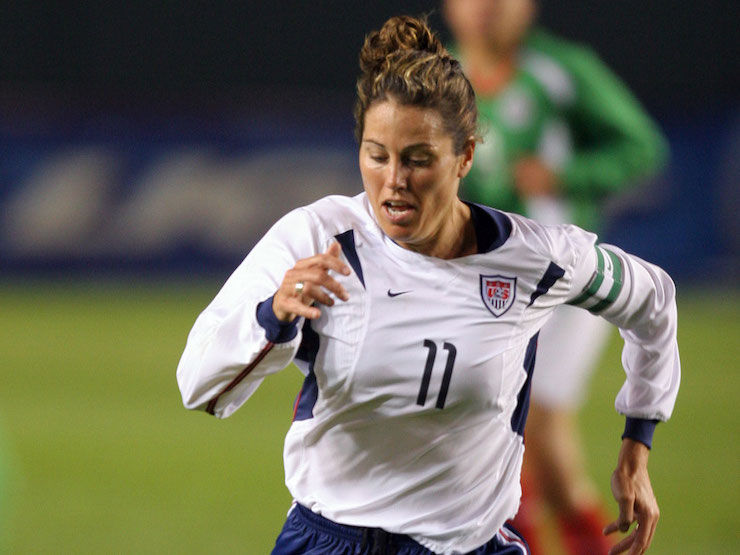
Bryan Price: These are unprecedented times for athletes and coaches – what would be your advice for them in navigating this pandemic period.
Julie Foudy: I think it’s important to realize that what we’re going through is hard, and it’s ok to feel crappy and to label it as such. And it’s normal to feel like you’re not getting enough in.
But don’t beat yourselves up.
I think we need to change our paradigm about our expectations and not be all consumed with thinking that we need to train at the same level. Because when we can’t reach those levels, that just increases our anxiety.
I suggest a healthy reframe. And even though we’re not getting that time with our teams on the pitch, I think getting together online can be fun too.
Most importantly, find what you have in your life right now that you’re grateful for.
Gratitude is something that is so good for your mind and for your health. For example, I have a yard, I have two healthy kids and a husband who likes to cook for me. We have sunshine today.
I like to find the silver lining and hunt joy, as Colleen always says, and share that with others because things could be so much worse.
I think about all those people on the front-lines, working in hospitals every day, and even your grocery store clerks. Let’s be grateful for those people and be kind to others.
And realize that what you’re doing right now is fine. And you don’t have to be doing the exact same amount when you had your team and a whole field to play on.
We’re going to get through this.

